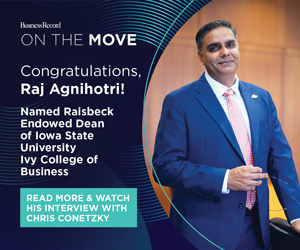Battle on the home front

.bodytext {float: left; } .floatimg-left-hort { float:left; margin-top:10px; margin-right: 10px; width:300px; clear:left;} .floatimg-left-caption-hort { float:left; margin-bottom:10px; width:300px; margin-right:10px; clear:left;} .floatimg-left-vert { float:left; margin-top:10px; margin-right:15px; width:200px;} .floatimg-left-caption-vert { float:left; margin-right:10px; margin-bottom:10px; font-size: 12px; width:200px;} .floatimg-right-hort { float:right; margin-top:10px; margin-left:10px; margin-bottom:10px; width: 300px;} .floatimg-right-caption-hort { float:left; margin-right:10px; margin-bottom:10px; width: 300px; font-size: 12px; } .floatimg-right-vert { float:right; margin-top:10px; margin-left:10px; margin-bottom:10px; width: 200px;} .floatimg-right-caption-vert { float:left; margin-right:10px; margin-bottom:10px; width: 200px; font-size: 12px; } .floatimgright-sidebar { float:right; margin-top:10px; margin-left:10px; margin-bottom:10px; width: 200px; border-top-style: double; border-top-color: black; border-bottom-style: double; border-bottom-color: black;} .floatimgright-sidebar p { line-height: 115%; text-indent: 10px; } .floatimgright-sidebar h4 { font-variant:small-caps; } .pullquote { float:right; margin-top:10px; margin-left:10px; margin-bottom:10px; width: 150px; background: url(http://www.dmbusinessdaily.com/DAILY/editorial/extras/closequote.gif) no-repeat bottom right !important ; line-height: 150%; font-size: 125%; border-top: 1px solid; border-bottom: 1px solid;} .floatvidleft { float:left; margin-bottom:10px; width:333px; margin-right:10px; clear:left;} .floatvidright { float:right; margin-bottom:10px; width:325px; margin-left:10px; clear:left;} tr.d0 td { background-color: #ccccff; color: black; }
Stacy Liebsch’s experiences include peacekeeping in Moscow during a coup that failed to overthrow Mikhail Gorbachev, leading a team of 30 Marines and seven vehicles on long patrols in Afghanistan after 9/11, coordinating relief efforts in New Orleans after Hurricane Katrina and most recently, managing the training of up to 170 Marines in Des Moines.
Yet on the home front, the retiring gunnery sergeant who has served 20 years in the Marine infantry faces one of his toughest missions yet: finding a civilian job with potential career growth.
Job search efforts that began last September have resulted in only a part-time job as a chauffeur for Smithson Limousine Service, and he is training to become a travel director with ITAGroup Inc., with his first assignment in Phoenix in March. He also has gone back to school, taking coursework online though Grantham University in Kansas City, Mo., to get a bachelor’s degree in business administration, which he expects to complete in 2009.
But with his full-time military pay ending in April when his vacation time runs out, Liebsch fears these jobs and his $1,500 monthly pension won’t be enough to support his wife, who provides in-home day care, and two children, ages 7 and 4. Back surgery in November further complicated his situation.
“There’s a little frustration,” Liebsch said.
“A lot of military will apply to be a sheriff or prison guard,” he said, “and they would love to have you because they know you’re physically fit and very knowledgeable with a weapon. I just look at it as, do I want to go from wearing a uniform and carrying a gun to wearing a uniform and carrying a gun? … I have so many computer skills, management and everything else that I would like to try to apply more of my knowledge and skills. It’s just getting your foot in the door and letting people know this is what I can do.”
About 20,000 U.S. soldiers retire from military service each month, and more than 45,000 people ages 17 to 44 in Iowa are veterans. This is a significant resource amid a looming worker shortage, and yet many veterans face huge hurdles in obtaining and retaining a civilian job.
This situation could become worse if the United States pulls troops from Iraq. Many soldiers have served two or three yearlong tours abroad and will have to reintegrate back into old jobs or enter the job market for the first time. Some veterans and government experts fear the same outcome as many Vietnam War veterans who ended up jobless and homeless.
These concerns have led to an influx of new programs in Central Iowa and nationwide designed to help veterans find employment and to work with employers to provide a better understanding of military skills.
Still, the unemployment rate among all veterans who served after the terrorist attacks of Sept. 11, 2001, was 9.5 percent as of August 2005, compared with 4.4 percent for nonveterans, according to the U.S. Department of Labor Bureau of Labor Statistics. In a recent letter to Treasury Secretary Henry Paulson encouraging the Internal Revenue Service to hire more veterans, Iowa Sen. Charles Grassley cited a September 2007 report from the Department of Veterans Affairs that found 18 percent of veterans were unemployed within one to three years of discharge.
Some employment experts say these figures don’t take into account those who are underemployed. Anthony Smithhart, director of the Iowa office of the U.S. Labor Department’s Veterans’ Employment and Training Service, says that term describes about 30 to 40 percent of the veterans he works with. The VA’s report found that of those veterans who found employment, 25 percent earned less than $21,840 a year.
Douglas Bryson, Local Veterans’ Employment Representative for Iowa Workforce Development, Region 11, said when he sends out a job posting, it goes to more than 600 veterans who are actively looking for employment or a better job in an eight-county region including Polk County.
“A lot of people are underemployed who are needing more money to live, but they don’t have the skill sets to get them more money,” Smithhart said, or they return to jobs wanting something more challenging after working in intense environments abroad.
Many are in their late 30s, have been active in the military for 20 years and now can retire with a small monthly pension from the military and begin a civilian career for the first time.
“They’ve demonstrated the ability and flexibility to maintain the longevity of a career, and they’re looking for the opportunity to do the same thing with Iowa employers,” Bryson said. “It’s a wonderful opportunity. They’re 38, they’re seasoned, they can come into any employer and give another 20 years right then and there, if not more.”
Help wanted
Tom Wyman retired from the Navy in his mid-40s and worked as a supervisor for the Metropolitan Stevedore Co. in Southern California, where he managed the loading and unloading of large merchant ships for a year and a half. Then his wife got a job at Principal Financial Group Inc., causing the family to move to Ankeny last June. Wyman eventually found work as a supervisor for Jacobson Cos., but then was laid off three months later.
Since then, he has struggled to find a job that pays more than $10 an hour, which he finds frustrating after reaching the level of chief quartermaster with the Navy, planning operations for up to six ships at a time for missions ranging from humanitarian efforts to beach raids. His Jacobson job was a 50 percent pay cut from Metropolitan Stevedore.
Last week, Wyman went to Lincoln, Neb., to take a government test to qualify for work in customs and immigration, fearing that without employment, he and his wife will struggle to pay for a new house in Ankeny and support their two children, ages 7 and 6.
“I think there’s a lot of misunderstanding among employers about what a veteran, especially a senior enlisted veteran, can bring to their organization,” Wyman said. “We’re not all uptight psychoanalytical marionettes. We’re trained to look at the situation, deal with people at hand and get the job done in the most efficient way possible without getting anyone hurt.” He has found that hiring managers are especially interested in managerial candidates with a college degree, which he doesn’t have.
Bridging the gap between military and civilian work is one of the greatest obstacles veterans face. Though these veterans possess intangible skills, including leadership, organization and teamwork, they often lack a college degree and struggle to put their experiences into terms employers can understand.
Those retiring from the military are required to go through the Transition Assistance Program, a three-day workshop that covers how to search for and apply for a job, create a resume and cover letter, and interview, as well as evaluating each person’s skills relative to the job market. However, Iowa does not have a TAP.
Liebsch said he had to travel to Omaha for his TAP, which meant he couldn’t benefit from networking with company representatives who attended. Another program, called Marine for Life, designed specifically to assist Marines in finding employment, put him in contact with a representative in Minneapolis, who has only two Iowa connections, one of whom is in Iowa City and the other who worked for a railroad company.
Local veterans also are referred to Iowa Workforce Development’s One-Stop Centers, where a representative works one-on-one to identify the veteran’s barriers to employment and directs him or her to additional assistance with partner organizations.
Iowa’s VETS receives $1,552,000 a year through a federal grant that pays for 17 positions in the IWD centers to focus specifically on helping veterans. The Disabled Veterans’ Outreach Program specialists who work in Region 11 handle about 50 to 60 cases at a time, Bryson said, which is up from 30 to 40 last year. Smithhart said he wishes he had more funding to increase the number of DVOP specialists, but the grant has been cut nearly in half over the past five years.
The grant also funds Bryson’s position, designed to increase employment opportunities for veterans by working with employers and other efforts, such as organizing job fairs. One result has been a partnership with Manpower Inc. of Des Moines to establish a TAP extension based on Manpower’s Strategies for Success curriculum in which Cheryl Freauff, branch manager of the local Manpower office and a veteran, will provide a free monthly four-hour seminar. The first session is this month.
One of the main focuses of this seminar will be how veterans can translate the skills they’ve acquired in the military into terms employers can understand, such as a store clerk emphasizing his or her supply procurement and accounting experience.
“I’ve been to career fairs at military bases,” said Freauff, “and it’s just absolutely incredible the skill level of these people, and equally incredible is the knowledge gap of how these skills can fit into civilian life.”
Bryson sees this Manpower relationship as especially valuable in connecting veterans to employers, given the company’s relationship with Fortune 500 companies. “I couldn’t promise these people an interview or job opportunity afterward,” he said. “They can.”
Bryson also organized a job fair in Des Moines last November, which led to 113 interviews or job offers and 65 veterans being hired, a sign that employers are eager to employ veterans once connected. Bryson is working on another career fair in March.
Yet some veterans may have to deal with bigger issues before they can even begin a civilian career.
Bigger barriers
A year after Anthony Beadle returned from Iraq, he is just starting to put the pieces of his civilian life together. During his yearlong service in Iraq as part of the Texas National Guard, Beadle helped guard an entry control point, where he faced intense situations, such as seeing soldiers and Iraqis with major wounds and engaging the enemy in hand-to-hand combat. When Beadle returned to his hometown of Marshalltown at age 21, he faced a divorce and could only find a job stocking shelves for Staples at $7.50 an hour after making $3,000 to $4,000 a month in the military.
“After being in the position I was in, it was very upsetting to me to know that through my experiences, I wasn’t able to even attain a decent enough job, something that could even offset the costs of what I was used to living,” he said. That is when depression started creeping in.
By the time he called his aunt for help this past Christmas, he couldn’t remember dates or even some of his family members’ names. He had dropped out of college, lost several jobs, and was waiting tables at a Perkins restaurant eight hours a week – a cut from the 40 he started with.
“The happy memories were gone,” Beadle said. “All I could remember was just the horrible stuff that had happened in my life, military and personal included.”
Now Beadle is being treated for post-traumatic stress disorder. He moved to Des Moines to be closer to veterans’ services and found a job; he was fired a week ago. He spends most of his time at a Hy-Vee cafeteria, reading to try to improve his memory, or at a bar near his apartment on the East Side.
Losing jobs after a few weeks has been a common pattern for Beadle, and he fears his disability will make it difficult for him to get a job in the future. He has been destitute before, having to collect cans for money while waiting to receive unemployment benefits from the military. Other veterans he’s met at the VA are even worse off, he said, with many homeless.
“In this instance, I only served a year,” Beadle said. “Guys out there have been there two, three, four times. I can’t believe what they’re going to be going through when they finally have to hit the job market.”
More support
Another challenge for veterans is trying to transfer their military experience into a civilian license.
For example, a Navy corpsman can administer IVs and perform surgeries in intense environments, but cannot get a nursing license in Iowa without going through a two-year program, said Bryson, a former Navy corpsman. Some states, such as Illinois, let these veterans get their license if they pass a test, making it more enticing for them to look for work outside Iowa, even though Iowa has more than 1,000 open nursing positions.
“There are nurses who never receive the training that some of these military advanced personnel receive,” Bryson said, “and yet, when you come out of the military, you can’t challenge the nursing credentialing in some states.”
Smithhart is looking at ways to address this issue in other areas, too, such as allowing a veteran who has driven a semitrailer truck thousands of miles to pass out of the driving requirement for a commercial driver’s license. “There’s not a lot of credit being given,” Smithhart said, “and if it is, it changes depending on the accrediting agency.”
The Small Business Administration also has made veterans’ services a priority, launching the Patriot Express Initiative in June 2007. A big part of that program is providing low-interest loans of up to $500,000 to start or expand a business that nearly every veteran or family member can qualify for. So far, 12 people have taken advantage of the loan program – none in Central Iowa – and 37 lenders have signed up to administer it. The SBA is working with partner agencies to make soldiers more aware of the service and encourages them to also seek counseling services for starting a business through SBA centers.
“We feel this is really significant,” said Joe Folsom, district director of the SBA’s Des Moines office, “because nationally 14 percent of businesses in America are veteran businesses.”
Some success
Keven Kohrt found a civilian job the traditional way, applying for more than 200 positions. He contacted Iowa Workforce Development and was directed to Freauff at Manpower who helped him tweak his resume and land a part-time job at Principal in January. That job turned into a full-time position a couple of weeks ago as a production specialist in the company’s life and health division.
But unlike other veterans, Kohrt, 38, started preparing for his civilian career while in the military. He chose to be a storekeeper, which entailed ordering materials and budgeting for his unit, giving him purchasing experience, and his last duty was with the Reserve Officer Training Corps unit at Iowa State University, which was “a good transitional command with a lot of civilians,” he said. He saved up enough vacation to have about three months to job hunt before his full-time pay ran out and is partway through a bachelor’s degree in business administration, with the intention of getting a master’s.
Yet Kohrt, who is married and has two sons, ages 15 and 12, admits the process was stressful. “I was going to do whatever I had to do,” he said, “maybe work as a prison guard or truck driver. I had hoped it wouldn’t come to something like that, but I looked into a lot of those things.”
Preparing for a civilian career wasn’t on Liebsch’s mind during his years of service. In between his stints of active duty, Liebsch drove a shuttle for Heartland Inn or delivered pizzas, but at age 39, he wants something more.
“If I would have stayed in the military longer,” he said, “I would have been older and harder to sell in the civilian world toward having a job, where I believe the younger I am, the more marketable I am.”
This story is the first of two parts.









